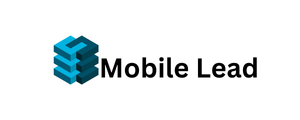If we pay attention to our work days, we spend a lot of time asking others for information, requesting different tasks, reports, status, among more information.
There are professionals who are literally more than prepared to ask questions, among them we can name journalists, lawyers, doctors, among others. The richness of this activity lies in starting to listen carefully to what it is that hurts your Hong Kong Email Database patient and, in our case, client, it allows you to understand the situation much better, it leads you to develop a true diagnosis; The next step is to continue with more questions: how to solve the problem? What are the priority actions? What is urgent? What is important? What actions can you expect? …
For marketing, communication, public relations; This questioning model and even giving yourself the time to make a personalized diagnosis per client works wonders since it shows the commitment you have to make tailored campaigns that help to solve pain not only for your clients; from our own trench we can add and heal anguish of consumers, of the products and services offered by each brand for which we work.
In a simple conversation, the questions add a special touch and turn a dialogue into a more productive experience; suddenly there will be questions that tense or make someone uncomfortable; but, without leaving the context, asking will enrich each of our conversations.
In work environments where questions are not allowed, where there is no space for questions; the format becomes a complete monologue and that causes great opportunities to be missed.
Asking is a powerful tool to unlock organizations, increase the opportunities to plan launches and communicate continuous messages in a more direct and clear way for audiences that are increasingly dynamic and participatory.
Much has been written and said that learning is largely based on the exchange of ideas; This is how innovation is triggered and execution is improved; additionally, this sharing of thoughts builds trust and loyalty among the participants. This way you can not only create successful campaigns; You can also reduce risks since asking makes it easier to raise various scenarios as a team, and it contributes to having contingency plans.
There is no doubt that for many people the issue of questioning and daring to do it in public comes naturally and easily; other people may be threatened by grief, fear, insecurity, or fear of asking a bad question.
But they well say that “the only bad question that exists is the one that is not asked.” Obviously understanding the environment and without passing limits that come out of the context or values as essential as respect.
The good news is that we are all capable of breaking our own barriers, and in the marketing sector where creativity plays a leading role, it is recommended to constantly promote it as part of the work culture. According to studies in mobile lead. The Harvard Business Review, “Asking questions increases emotional intelligence; with practice we feel more confident to ask more questions, which becomes a virtuous circle.
To become an important part of the marketing and communication team, either from inside or outside the organization; The more we know about the brand, about the goals to be achieved by clients and about the interests and needs of consumers, the more effective we can put together and carry out projects and ongoing campaigns. Let’s not forget that for the greatness of knowing how to ask results; we have to be ready, willing and attentive to listen.
